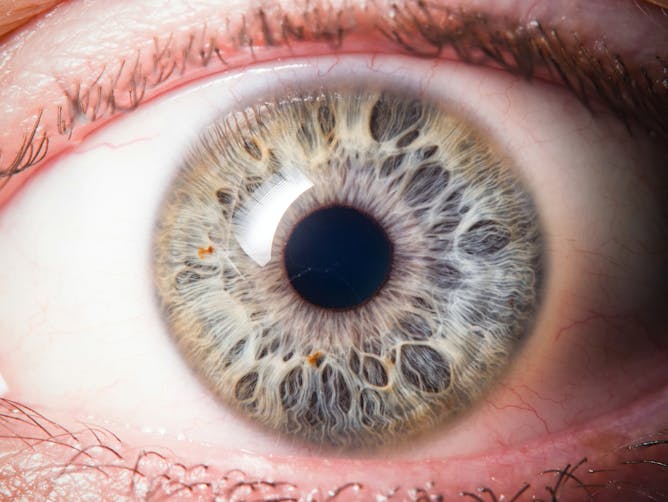|
|
|
|
In the split second that Tony Kofi was in suspension after he fell from the third storey of a building, his entire life flashed before his eyes. Then he hit the floor, fell unconscious, and awoke some time later in hospital. His experience is mirrored in the testimony of thousands of others who’ve reported serene, cinematic “life reviews” as they are in the throes of a near-death experience.
“My life flashed before my eyes” is a phrase we’re all familiar with, but we’re less familiar with the science behind the phenomenon. Particularly puzzling is the fact that, for many who’ve had such an experience, the memories of a lifetime are comfortably replayed within a vanishingly small amount of time. While experts have offered tentative explanations for this, we’ve heard from a psychologist who believes the altered state of consciousness we enter during traumatic experiences could actually shift our linear perspective of time itself.
Down in Cornwall, G7 leaders will be keenly aware of time ticking away on their pledge to achieve net zero by 2050. But an expert in environmental change argues we must aim to go much further, looking back in time to clean up after our historic emissions too. And our understanding of how COVID-19 variants can resist vaccines has taken another step forward with a study of how the virus can create “supercells”
and potentially evade antibodies.
|
Alex King
Commissioning Editor, Science + Technology
|

|
|

photoJS/Shutterstock
Steve Taylor, Leeds Beckett University
A different interpretation of time might explain why people see their whole lives replayed to them in a split second.
|

Bankside Power Station operated in central London between 1891 and 1981. Today, the building hosts the Tate Modern art gallery.
Caroline Webb / Alamy
Tim Kruger, University of Oxford
Countries that industrialised early will still have a massive 'carbon debt' to repay.
|

American Photo Archive/Alamy Stock Photo
Zania Stamataki, University of Birmingham
Scientists have discovered that SARS-CoV-2 can evade neutralising antibodies by fusing cells.
|
Arts + Culture
|
-
Janet Greenlees, Glasgow Caledonian University; Andrea Ford, University of Edinburgh; Sara Read, Loughborough University
Accounts of previous epidemics – by Samuel Pepys, Daniel Defoe and Katherine Porter – warn of mistakes that we risk repeating.
-
Mark James Carroll, Liverpool John Moores University; Colum Cronin, Liverpool John Moores University; Simon J Roberts, Liverpool John Moores University
The images projected to fans of the sport have always been intentional. Here's what they do to keep people onside.
|
|
Science + Technology
|
-
Saumil Vadodaria, University of Birmingham
How do you turn your 3D plastic printer into a food printer? You just print the required parts.
-
Hom Dhakal, University of Portsmouth
The film is similar to other plastics, but it can be composted at home.
|
|
Health + Medicine
|
-
Rob Reddick, The Conversation
Though the British prime minister has called on countries to share more doses internationally, the UK may continue to prioritise its domestic rollout.
-
Lindsay Bottoms, University of Hertfordshire
Hiking has seen a sharp increase in popularity since the start of the pandemic.
|
|
Environment + Energy
|
-
George Ferns, Cardiff University; Marcus Gomes, Cardiff University
Rhetoric is hardening, but government policies still honour the special relationship with fossil fuels.
-
Ruben Valbuena, Bangor University; Thomas Lovejoy, George Mason University
To protect natural ecosystems we will need a system that actually counteracts market forces.
|
|
Politics + Society
|
-
Pooyan Tamimi Arab, Utrecht University; Ammar Maleki, Tilburg University
Ahead of June 18 presidential elections, a new survey found that only around a quarter of Iranians plan to vote.
-
Gemma Ware, The Conversation; Daniel Merino, The Conversation
Plus, why fireflies need dark nights and what you can do about it. Listen to episode 19 of The Conversation Weekly.
|
|
Education
|
-
Argyro Kanaki, University of Dundee; Susana Carvajal, University of Dundee
A post-lesson diary is a promising teaching tool which helps students reflect on language connections and replay their learning steps.
|
|
Business + Economy
|
-
Ingrid Harvold Kvangraven, University of York
It has consequences for everything from voting rights at the IMF to international borrowing costs.
|
|
| |
Featured events
|

|
Online Oxford Martin School Event, Online, Oxfordshire, N/A, United Kingdom of Great Britain and Northern Ireland — University of Oxford
|

|
Online, Birmingham, Warwickshire, B15 2TT, United Kingdom of Great Britain and Northern Ireland — University of Birmingham
|

|
Online, Birmingham, Birmingham, B15 2TT, United Kingdom of Great Britain and Northern Ireland — University of Birmingham
|

|
University of Essex, Wivenhoe Park, Colchester, Essex, CO4 3SQ, United Kingdom of Great Britain and Northern Ireland — University of Essex
|
|
|
|
| |
| |
| |
| |
| |
|
|
|
|
|
|
|